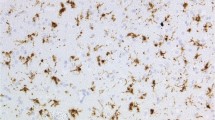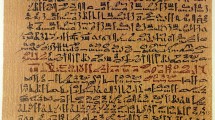Abstract
The Bible contains several interesting contributions to the history of neurology, as is the case of the High Priest Alkimos, who died suddenly in 159 BC. He was regarded as a stereotypical stroke victim for a long time. The reports on his death in the Septauginta and the later ‘Jewish Antiquities’ of Flavius Josephus present some typical symptoms of stroke (collapse, loss of speech and death within a short time), but they also describe severe pains, which are very unusual among patients with stroke.
Similar symptoms can be found in the case of the Roman emperor Claudius, who was poisoned by his spouse Agrippina. It was thought that she used aconitine, an ingredient of the monkshood plant (Aconitum napellus L.), which imitates an apoplectic insult, but also causes vehement pains. It was therefore possible that something similar had happened to Alkimos, as aconitine was a common poison in ancient times and the surroundings of his death may confirm the suspicion. Reigning during a time of great upheaval, Alkimos was able to maintain his high office chiefly because of the help of the Seleucides. He had just begun construction work on the temple of Jerusalem, an order, which was regarded as a sacrilege by his foes. This impression was enhanced by his subsequent illness which could be considered as a divine punishment.




Similar content being viewed by others
References
Rosner F, editor, translator. Julius Preuss’ biblical and talmudic medicine. New York: Sanhedrin Press, 1978
Fishbein M. Strokes (1): some literary descriptions. Postgrad Med 1965; 37 (2): A–194
Fischer T. Alkimos: Lexikon für Theologie und Kirche 1. Freiburg/Breisgau: Herder, 1993: 395
Fischel HA. The first book of Maccabees [with commentary]. New York: Schocken Books, 1985: 75
Marcus R, editor. Josephus in nine volumes. Vol. VII: Jewish antiquities, books XII-XIV. London: William Heinemann Ltd, Harvard University Press, 1961: 215
Trusen JP. Darstellung der biblischen Krankheiten und der auf die Medizin bezüglichen Stellen der heiligen Schrift. Bad Reichenhall: Antiquariat Rudolf Kleinert, 1966: 183
Lewin L. Die Gifte in der Weltgeschichte: Toxikologische, allgemein-verständliche Untersuchungen der historischen Quellen. Berlin: Julius Springer, 1920: 194
Karenberg A, Moog FP. Die Apoplexie im medizinischen Schrifttum der Antike. Fortschr Neurol Psychiatr 1997; 65: 493–4
Jackson J, editor. Tacitus in five volumes. Vol. IV: the annals, books IV-VI, XI-XII. Cambridge (MA): William Heinemann Ltd, Harvard University Press, 1970: 413
Frohne D, Pfänder JF. Giftpflanzen: Ein Handbuch für Apotheker, Ärzte, Toxikologen und Biologen. 4, neu bearbeitete und erweiterte Auflage. Stuttgart: Wissenschaftliche Buchgesellschaft, 1997: 312
Acknowledgements
The authors have provided no information on sources of funding or on conflicts of interest directly relevant to the content of this review.
Author information
Authors and Affiliations
Rights and permissions
About this article
Cite this article
Moog, F.P., Karenberg, A. Toxicology in the Old Testament. Adv Drug React Toxicol Rev 21, 151–156 (2002). https://doi.org/10.1007/BF03256190
Published:
Issue Date:
DOI: https://doi.org/10.1007/BF03256190




